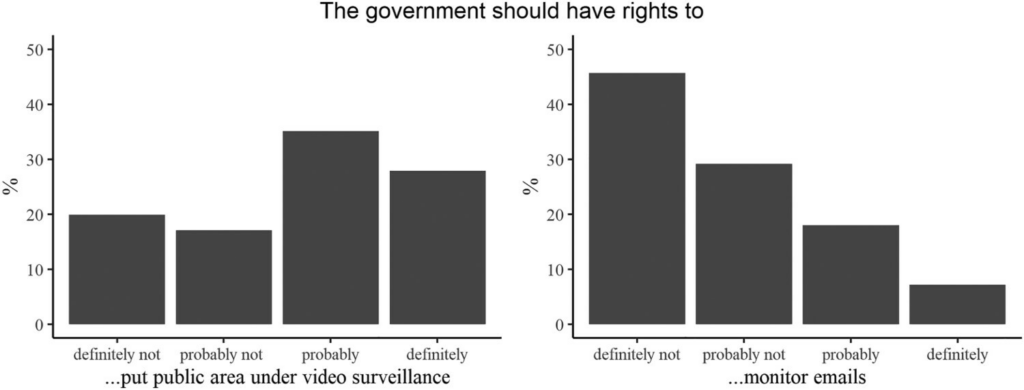In this study, we investigate whether, and why, individuals express different levels of acceptance of surveillance depending on their educational level, and whether this relationship varies with the level of digitalization and globalization expansion of their country. Additionally, we ask whether the type of surveillance (online surveillance vs cameras in public areas) conditions these differences. We build on two theoretical frameworks, one concerned with the resurgence of authoritarian values via the cultural backlash, and the other one explaining how different people analyse manufactured risks differently due to processes of reflexive modernization. In order to test the hypotheses, we employ data from the latest wave of the European Values Study (EVS) and implement multilevel multivariate regression models. Findings indicate that the lower educated individuals are more prone to accept online surveillance, due to their stronger authoritarianism and weaker reflexive mindset; however, there is no educational gradient in acceptance of video surveillance in public areas. Additionally, the countries’ levels of digitalization and globalization expansion do not condition the educational gradient in acceptance of surveillance.

Angelica M. Maineri, P. Achterberg & R. Luijkx (2022) Switch on the Big Brother! Investigating the educational gradients in acceptance of online and public areas surveillance among European citizens, European Societies, 24:5, 628-656, DOI: 10.1080/14616696.2022.2043412
https://www.tandfonline.com/doi/full/10.1080/14616696.2022.2043412
